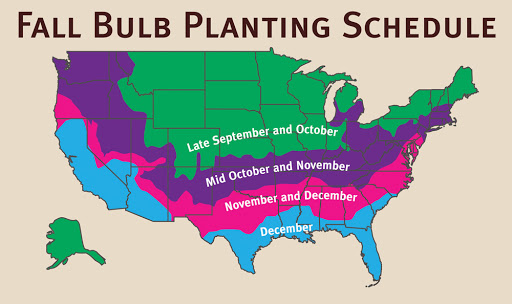I’ve been purchasing bulbs from A.D.R. for many years. The quality is superior and the service fantastic. Chris and his family have always been prompt and accommodating. If you need it, Chris can find it! I wouldn’t shop anywhere else!
Anna Myatt
, Myatt Landscaping
« Previous Plant | Next Plant »
Narcissi Large Cupped 'Chromacolor'
Daffodil
Narcissus 'Chromacolor' is a large-cupped daffodil, reaching 16 to 20 inches in height. It produces huge, 5 inch blooms, with pure white petals framing an extra-wide, deep coral-pink cup that intensifies in color as it matures. The flowers appear in mid-spring and are lightly fragrant, making them excellent for borders, containers, and cut arrangements. Thriving in full sun to part shade, 'Chromacolor' prefers well-drained soil and is deer-resistant, rabbit-resistant, and drought-tolerant.
206.80
Narcissi Calculator
When should I plant Narcissi Large Cupped 'Chromacolor'?

Growing and Maintenance Tips for Narcissi Large Cupped 'Chromacolor'
Planting: Plant bulbs in fall, 6 inches deep and 4 to 6 inches apart, with the pointed end up. These daffodils are ideal for mass plantings or formal borders.
Location: Full sun to partial shade. They bloom best with at least 6 hours of sunlight daily.
Soil: Well-drained, moderately fertile soil with a slightly acidic to neutral pH (6.0–7.0). Enrich with compost or leaf mold.
Watering: Water after planting and during active spring growth. Once foliage yellows, reduce watering—bulbs prefer dry summer dormancy.
Temperature: Hardy in USDA zones 3–8. Requires a winter chill to bloom reliably.
Fertilization: Apply compost or a low-nitrogen fertilizer in fall and again in early spring.
Pruning: Deadhead spent blooms to prevent seed formation. Allow foliage to die back naturally to recharge the bulb.
Propagation: Naturalizes by offsets. Divide clumps every 4 to 5 years in summer when dormant.
Pest & Disease: Deer- and rodent-resistant. Good drainage prevents bulb rot.








Check back soon for additional details.